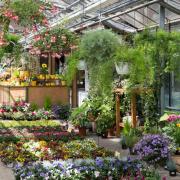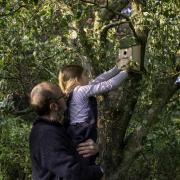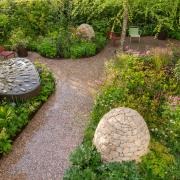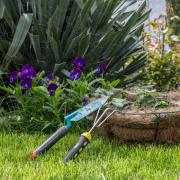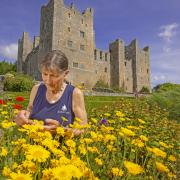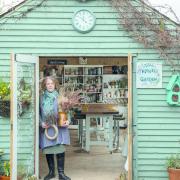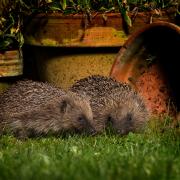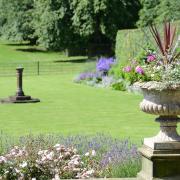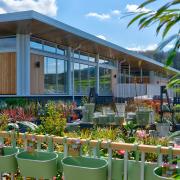Sculptures can look very life-like, but few are actually alive. Which is what sets apart the living willow fences created by craftsman Phil Bradley as part of his new art trail at RHS Harlow Carr on the outskirts of Harrogate.

Visitors can now wind their way through the willows at the North Yorkshire horticultural haven, tipping their hats to wildlife characters, like boxing hares, horses, pigs (yes, there are three and, yes, they are little) and dragons, and marvelling at willow fences designed to continue growing in-situ.
Phil grows more than 60,000 willow plants on his three-acre farm in the Lake District and spends his time teaching willow-working and creating willow sculptures. He’s created many garden installations for Harlow Carr in the last 15 years, but his latest willow trail is their most ambitious joint project to date.

‘I work with greenwood, particularly willow, and am obsessed with the home-grown and the handmade,’ he explained. ‘I have been working with willow since 1990 and my imagination has been captivated by this truly amazing plant. Willow is the perfect example of a sustainable material that can be woven into sculptural or pragmatic forms with such spontaneity.
‘I am a basket-maker by training and grow all of my own willow (38 cultivars) in Cumbria. My willow is grown without any reliance on pesticides or artificial fertiliser and is the starting point for a story that reflects a creative process based on environmental integrity.
‘Connecting with people and places and sharing my love of making things is all part of my work. The willow sculptures that I have helped build at Harlow Carr over the last 15 years have been a collaborative process, working with the garden team in this most inspirational place.’
For full details, please visit rhs.org.uk/harlowcarr. The garden in Crag Lane is open every day except Christmas Day from 9.30am-4pm November to February, and 9.30am-6pm March to October (last admission one hour before closing). RHS members enjoy free entry with a family guest (entitlements vary according to membership type) and non-members pay £7.95 (adult), £21.50 (family), £3.95 (children 5-16; under 5s free) or £6.90 (groups).
By royal appointment
The Royal Horticultural Society was founded in 1804 by Sir Joseph Banks and John Wedgwood for the encouragement and improvement of the science, art and practice of horticulture.
It held its first flower shows in 1820, was granted a Royal Charter in 1861 and acquired RHS Garden Wisley, its first garden, in 1903.
From its first meeting in a small room off London’s Piccadilly, it has grown into the world’s largest gardening charity.
Today – more than two centuries on – the RHS is committed to providing a voice for all gardeners, driven by a simple love of plants and a belief that gardeners make the world a better place.
If you would like to support the RHS and secure a healthy future for gardening, call 0845 130 4646 or visit rhs.org.uk/join.
Basket case
According to the Basketmakers’ Association, there has been a tremendous revival in the craft in recent years, with local and regional groups taking off and an increase in demand for day, evening and weekend courses.
This, of course, has also meant an upturn in willow-growing to feed the demand. But why are ordinary folk up and down the country turning to basket-weaving?
‘The reasons for this upsurge are many,’ said a spokesman for the organisation. ‘The reaction against mass produced items; the irresistible feel and scent of willow and other weaving materials; and the desire to take part in one of the oldest crafts known to man are just some of them.’
:: To find out more, or to find a registered maker in your area, visit basketassoc.org.






